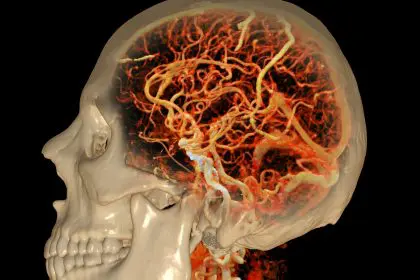Sleep apnea affects millions of people worldwide, yet many remain unaware that this common sleep disorder is silently destroying their brain tissue night after night. The repeated interruptions in breathing that characterize sleep apnea create a cascade of harmful effects that extend far beyond daytime fatigue, causing permanent damage to cognitive function, memory formation, and overall brain health.
The insidious nature of sleep apnea makes it particularly dangerous because the most severe damage occurs during sleep when individuals are completely unaware of the assault on their brain. Each breathing interruption triggers a complex series of physiological responses that deprive the brain of essential oxygen while flooding the system with stress hormones that further compound the damage.
Understanding how sleep apnea destroys brain tissue and cognitive function becomes crucial for recognizing this silent threat and taking action before irreversible damage occurs. The progressive nature of brain damage from sleep apnea means that early intervention can prevent devastating long-term consequences, while delayed treatment may leave individuals facing permanent cognitive impairment.
1. Oxygen deprivation triggers massive brain cell death
Sleep apnea causes repeated episodes of oxygen deprivation throughout the night, with some individuals experiencing hundreds of breathing interruptions that can last from seconds to over a minute. During these episodes, oxygen levels in the blood drop dramatically, starving brain cells of the oxygen they need to survive and function properly.
Brain tissue is particularly vulnerable to oxygen deprivation because neurons have extremely high metabolic demands and cannot survive without constant oxygen supply. When oxygen levels drop during apnea episodes, brain cells begin dying within minutes, creating areas of permanent damage that accumulate over time.
The repeated cycle of oxygen deprivation and restoration creates a pattern similar to repeated strokes, with each episode causing additional brain cell death. This process, known as intermittent hypoxia, triggers inflammatory responses that further damage surrounding brain tissue and accelerate the destruction of healthy neurons.
Brain imaging studies reveal that people with untreated sleep apnea show significant brain tissue loss in areas responsible for memory, attention, and executive function. The damage appears as actual holes or shrinkage in brain regions, representing permanently destroyed tissue that cannot be regenerated or restored.
2. Memory consolidation becomes severely impaired
The brain’s ability to form and consolidate memories depends heavily on the deep sleep stages that sleep apnea repeatedly disrupts. During these critical sleep phases, the brain transfers information from short-term to long-term memory storage, a process that becomes impossible when breathing interruptions constantly fragment sleep.
Memory formation requires specific brainwave patterns that occur during uninterrupted deep sleep. Sleep apnea prevents the brain from maintaining these patterns long enough for proper memory consolidation, resulting in significant difficulties with learning new information and retaining important details from daily experiences.
The hippocampus, the brain’s primary memory center, shows particularly severe damage in sleep apnea patients. This region shrinks significantly over time, leading to progressive memory loss that can be mistaken for early dementia or normal aging but actually represents preventable brain damage.
Working memory, which allows people to hold and manipulate information temporarily, becomes severely compromised as sleep apnea damages the prefrontal cortex. This impairment affects the ability to concentrate, follow complex instructions, or perform tasks requiring mental flexibility and problem-solving skills.
3. Cognitive decline accelerates dramatically
Sleep apnea accelerates cognitive decline at a rate comparable to aging an additional 10-15 years, with processing speed, attention, and executive function deteriorating much faster than normal. The cumulative effect of nightly brain damage creates a progressive decline that becomes increasingly noticeable over time.
Decision-making abilities become impaired as sleep apnea damages the prefrontal cortex, leading to poor judgment, increased impulsivity, and difficulty weighing consequences. These changes can significantly impact work performance, relationships, and personal safety as individuals struggle with tasks that once seemed effortless.
Language processing and verbal fluency decline as sleep apnea affects brain regions responsible for communication. People may struggle to find words, follow conversations, or express complex thoughts, leading to social isolation and reduced quality of life.
Mental flexibility and problem-solving skills deteriorate as sleep apnea damages neural networks responsible for cognitive adaptability. This impairment makes it difficult to adjust to new situations, learn new skills, or respond effectively to changing circumstances.
4. Dementia risk increases exponentially
Sleep apnea significantly increases the risk of developing dementia, with severe cases doubling or tripling the likelihood of cognitive decline severe enough to interfere with daily functioning. The chronic oxygen deprivation and sleep fragmentation create ideal conditions for the development of neurodegenerative diseases.
The brain’s waste clearance system, which removes toxic proteins during sleep, becomes severely impaired in sleep apnea patients. This dysfunction leads to the accumulation of amyloid plaques and tau tangles associated with Alzheimer’s disease, accelerating the development of dementia.
Vascular dementia risk increases dramatically due to the cardiovascular strain caused by sleep apnea. The repeated stress on blood vessels from oxygen deprivation and sudden re-oxygenation creates conditions that promote small strokes and vascular damage throughout the brain.
Early-onset dementia becomes more likely in younger individuals with severe sleep apnea, as the accelerated brain damage can trigger cognitive decline decades earlier than would occur naturally. This premature aging of the brain represents one of the most devastating consequences of untreated sleep apnea.
5. Stroke risk multiplies dangerously
Sleep apnea increases stroke risk by up to 400% due to the combination of oxygen deprivation, blood pressure fluctuations, and cardiovascular stress that occurs during each apnea episode. The repeated strain on blood vessels creates conditions that promote blood clot formation and vessel rupture.
Blood pressure spikes dramatically during each breathing interruption as the body struggles to maintain oxygen delivery to vital organs. These repeated pressure surges damage blood vessel walls and increase the risk of both hemorrhagic and ischemic strokes.
Blood clotting mechanisms become disrupted by the chronic inflammation and stress responses triggered by sleep apnea. This disruption increases the likelihood of dangerous clots forming in brain blood vessels, leading to strokes that can cause immediate death or permanent disability.
Silent strokes, which cause brain damage without obvious symptoms, occur frequently in sleep apnea patients. These small strokes accumulate over time, creating cumulative brain damage that contributes to cognitive decline and increases the risk of larger, more devastating strokes.
6. Mood disorders develop from brain damage
Sleep apnea-related brain damage significantly increases the risk of developing depression, anxiety, and other mood disorders as the condition affects brain regions responsible for emotional regulation. The chronic stress and inflammation caused by repeated oxygen deprivation alter brain chemistry in ways that promote mental health problems.
The emotional control centers of the brain become impaired, leading to increased irritability, mood swings, and emotional instability. These changes can strain relationships and affect work performance, creating additional stress that compounds the underlying sleep disorder.
Anxiety disorders develop as sleep apnea damages brain regions responsible for fear processing and stress response. The chronic activation of stress hormones during apnea episodes creates a state of hypervigilance that can persist during waking hours.
Depression risk increases significantly due to the combination of sleep deprivation, chronic stress, and actual brain damage caused by sleep apnea. The condition affects neurotransmitter production and brain structure in ways that promote persistent feelings of sadness and hopelessness.
7. Daytime functioning deteriorates progressively
The cumulative effects of nightly brain damage manifest as progressively worsening daytime symptoms that interfere with work, relationships, and quality of life. These symptoms often develop gradually, making it difficult to recognize the connection to sleep apnea until significant damage has occurred.
Concentration problems become severe as sleep apnea damages attention networks in the brain. Simple tasks require enormous effort, and the ability to focus for extended periods becomes increasingly difficult, affecting job performance and personal productivity.
Reaction times slow dramatically due to the processing speed deficits caused by sleep apnea-related brain damage. This impairment creates serious safety risks, particularly when driving or operating machinery, as the delayed responses can lead to accidents and injuries.
Energy levels plummet as the brain struggles to function with damaged neural networks and disrupted sleep patterns. The constant fatigue goes beyond simple tiredness, representing actual impairment in the brain’s ability to maintain alertness and cognitive function.
Recognition and intervention prevent further damage
Early recognition of sleep apnea symptoms can prevent much of the brain damage associated with this condition. Loud snoring, gasping during sleep, morning headaches, and excessive daytime fatigue represent warning signs that should prompt immediate medical evaluation.
Treatment with continuous positive airway pressure therapy can halt the progression of brain damage and may even allow some recovery of cognitive function. However, the longer sleep apnea goes untreated, the more likely it is that some damage will be permanent.
Lifestyle modifications including weight loss, positional therapy, and avoiding alcohol can reduce the severity of sleep apnea and minimize ongoing brain damage. These changes work best when combined with appropriate medical treatment.
The progressive nature of sleep apnea-related brain damage makes early intervention crucial for preserving cognitive function and preventing devastating long-term consequences. Recognizing this sleep disorder as a serious medical condition rather than a minor inconvenience can literally save lives and preserve quality of life for millions of people.















